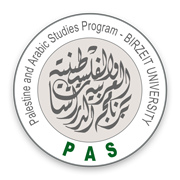Throughout each semester, students have the opportunity to travel to areas of cultural and historical significance around Palestine. These trips are lead by our distinguished faculty and staff and provide students with a deeper understanding of Palestine: from the geography and natural diversity of the land, to the people and their many ways of life.
Hebron
With a population of 250,000, Hebron is the largest city in the West Bank and home of both beautiful handmade goods and much controversy. Historically, Hebron has been important to many faiths through its association with Abraham/Ibrahim. Hebron is responsible for nearly one-third of the GDP of the West Bank, as well as being home to artisans that produce traditional Palestinian products, including pottery, glass, and handmade keffiyas.
Nablus
As the second largest city in the West Bank, Nablus is the cultural gathering spot of northern Palestine. Known for its olive oil soap factories that still produce their product through traditional methods, ornate bath houses and historical landmarks that date back before the Roman rule of Palestine, Nablus never ceases to amaze. Students have the chance to thoroughly explore the Old City, meet the locals, tour a soap factory and taste the best kanafeh in Palestine.
Jericho
Wander back in time by hiking Wadi Qelt. This hiking trip takes students from the mountains above Jericho down through a steep canyon with beautiful views of a simpler time. Explore St. George’s Monetary, splash about in the river, explore the diversity of the riverbed, scramble over rocks, pick your way through bamboo groves, and walk under dwellings carved straight from the cliffs. At the end of the day, relax on a cushion at under a tent on the outskirts of the oldest city in the world, while eating a traditional Bedouin meal.
Salfeet
Renowned for its olives, beautiful mountains and ancient Ottoman villages, this day trip takes students into the heart of Salfeet and exposes them to daily life in this small but impressive area in Palestine. Students have the opportunity to meet with local leaders, tour the narrow streets and rooftops of ancient villages that are in the process of being restored, visit homes of local residents, and end the day with home-cooked maqluba, Palestine’s national dish.
